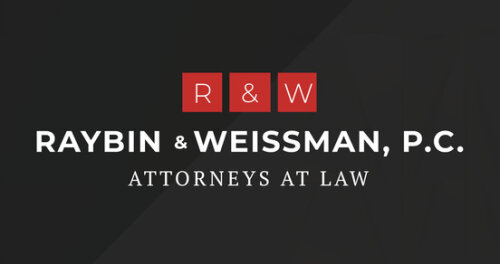Best Work Injury Lawyers in Nashville
Share your needs with us, get contacted by law firms.
Free. Takes 2 min.
List of the best lawyers in Nashville, United States
About Work Injury Law in Nashville, United States
Work injury law covers the legal rights and remedies available to people who are hurt or become ill because of their job. In Nashville, Tennessee, most workplace injuries are handled under the Tennessee workers compensation system, a no-fault insurance program that provides medical care and wage-replacement benefits without the injured worker having to prove the employer was negligent. Separate legal remedies may exist when a third party is at fault, when an employer intentionally caused harm, or in certain discrimination or retaliation situations. Understanding the interplay between workers compensation, third-party claims, and employer obligations is essential for anyone dealing with a work-related injury in Nashville.
Why You May Need a Lawyer
Many injured workers can obtain benefits without legal representation, but an attorney can be critical when issues are contested or complex. Common situations where people should consider hiring a lawyer include:
- Denied or delayed medical treatment or benefits after a reported injury.
- Disputes over the extent of injury, disability rating, or entitlement to permanent benefits.
- Claims involving repeated trauma, occupational disease, or gradual onset conditions that are denied as non-work-related.
- When an employer or insurer argues the injury happened outside of employment duties or after the worker was separated from employment.
- Third-party cases where a non-employer caused the injury and additional compensation is possible beyond workers compensation benefits.
- Complex medical issues requiring independent medical examinations, vocational rehabilitation disputes, or disagreements over work restrictions and light-duty offers.
- Cases involving serious injury or death where funeral expenses, dependency claims, or long-term loss of earning capacity are at stake.
- Concerns about retaliation, termination, or discrimination for reporting an injury or filing a claim.
Local Laws Overview
Below are key aspects of Tennessee and Nashville practice that injured workers should know. This overview is intended to explain common rules and processes - always check precise deadlines and requirements for your case.
- No-fault workers compensation system - Tennessee provides medical benefits and wage-replacement through workers compensation regardless of fault, subject to eligibility requirements.
- Reporting your injury - You must notify your employer about a work-related injury or illness promptly. Failing to report in a timely way can jeopardize benefits. Employers often have internal procedures and timelines to follow.
- Medical treatment - Employers or their insurers usually have the right to direct initial medical care through a designated provider or managed care arrangement. Emergency care is always allowed, but follow-up care rules vary by employer program and statutory limits.
- Wage-replacement benefits - If you cannot work because of a compensable injury, you may receive partial wage replacement. Amounts are generally calculated as a percentage of pre-injury earnings, subject to statutory maximums and minimums.
- Permanent impairment and disability - If an injury causes permanent impairment, you may be entitled to additional benefits based on impairment ratings and loss of earning capacity.
- Death benefits - When a work injury causes a fatality, dependents may be eligible for funeral expenses and ongoing benefits.
- Exclusive remedy rule and exceptions - Workers compensation is generally the exclusive remedy against an employer for workplace injuries. Exceptions can include intentional torts by the employer, certain statutory claims, or third-party lawsuits when someone other than the employer caused the harm.
- Third-party claims - You can pursue a third-party lawsuit for additional compensation when the injury resulted from the actions of someone other than your employer, such as a contractor, driver, or equipment manufacturer. Recovery in a third-party case may be reduced by workers compensation benefits through subrogation rules.
- Appeals and hearings - Disputes over benefits or medical treatment are typically handled through the state workers compensation system and may proceed to hearings and appeals if not resolved.
- Statutes of limitation and procedural deadlines - There are time limits for reporting injuries, filing claims, and appealing decisions. These deadlines can be strict, and missing them may bar your rights, so act promptly.
Frequently Asked Questions
What should I do immediately after a work-related injury in Nashville?
Seek necessary medical attention first. Report the injury to your supervisor or employer as soon as possible and follow any company reporting procedures. Keep records of the date, time, location, witnesses, and a description of how the injury happened. Preserve medical records and pay stubs, and take photographs of the injury and the scene if safe to do so.
Do I have to prove my employer was negligent to get workers compensation benefits?
No. Workers compensation is typically a no-fault system, meaning benefits are available without proving employer negligence. The main question is whether the injury arose out of and in the course of employment, and whether it meets the statutory definitions for compensable injury.
Will my employer pay my medical bills for a work injury?
Yes, if the claim is compensable, employers or their insurers generally cover reasonable and necessary medical treatment related to the work injury. Many employers use a managed care plan or designated providers for non-emergency treatment. Make sure treatment is approved under the employer program when possible to avoid disputes.
How much compensation can I receive for lost wages?
If you are temporarily unable to work, you may qualify for temporary wage-replacement benefits. The payment amount is typically a percentage of your average weekly wage, subject to statutory caps. The duration and amount depend on whether the disability is temporary or permanent and the degree of impairment.
Can I sue my employer in court for a workplace injury?
Generally, workers compensation is the exclusive remedy against an employer, which prevents most civil lawsuits for negligence. Exceptions exist for intentional injuries by the employer, certain statutory violations, or when a third party is responsible. Consult an attorney to evaluate whether an exception applies in your situation.
What is a third-party claim and should I pursue one?
A third-party claim is a lawsuit against someone other than your employer whose negligence or wrongdoing caused your injury, such as a driver, contractor, or equipment manufacturer. Pursuing a third-party claim can provide compensation beyond workers compensation benefits, including pain and suffering and full wage recovery. Keep in mind that your employer or its insurer may have a right to recover some of the workers compensation payments from the third-party recovery.
What happens if my workers compensation claim is denied?
If your claim is denied, you have the right to appeal. Administrative hearings are available to resolve disputes over compensability, medical treatment, and benefits. An attorney experienced in workers compensation can help gather evidence, arrange independent medical evaluations, prepare for hearings, and argue on your behalf.
Can my employer fire me for filing a workers compensation claim?
Firing or retaliating against an employee for filing a workers compensation claim is generally prohibited. If you believe you were retaliated against for reporting an injury or seeking benefits, you may have a separate legal claim. Document any adverse actions and consult a lawyer promptly.
How long do I have to file a workers compensation claim?
There are specific timelines for reporting an injury, filing claims with the appropriate administrative body, and pursuing appeals. These deadlines vary by circumstance and can be strict. It is important to report the injury right away and consult with a lawyer or the state workers compensation office to understand the exact time limits that apply to your case.
What should I bring to a consultation with a workers compensation lawyer?
Bring as much documentation as possible, including the accident report, employer correspondence, medical records, bills, pay stubs or wage statements, photographs of the injury or accident scene, witness contact information, and any denial or correspondence from the insurer. This helps the attorney evaluate your claim and recommend next steps quickly.
Additional Resources
Here are organizations and agencies that can help you learn more, file a claim, or get assistance in Nashville and Tennessee:
- Tennessee Bureau of Workers Compensation - the state agency that administers workers compensation claims and provides information on filing and appeals.
- Tennessee Department of Labor and Workforce Development - offers resources on workplace rights, employer obligations, and safety programs.
- Occupational Safety and Health Administration - federal agency that enforces workplace safety standards and investigates hazardous conditions. The Tennessee OSHA program also provides state-level resources.
- Local legal aid organizations and clinics - offer low-cost or no-cost advice for people who qualify based on income.
- Nashville Bar Association and Tennessee Bar Association - referral services can help you find experienced workers compensation attorneys in your area.
- Veteran and disability support organizations - can help coordinate benefits and vocational rehabilitation resources when long-term impairments occur.
Next Steps
If you have a work injury in Nashville and need legal help, follow these steps to protect your rights and position your case for the best possible outcome:
- Seek immediate medical care and follow your provider's instructions. Keep copies of all medical records and bills.
- Report the injury to your employer promptly and follow the employer's reporting procedures. Get a written copy of any accident report you complete.
- Document everything - dates, times, witnesses, conversations with supervisors or insurers, and changes in your condition or work duties.
- Keep pay stubs and records showing your pre-injury earnings to assist in calculating wage-replacement benefits.
- If your claim is contested, or if your injury is serious, consult an experienced workers compensation attorney as soon as possible. Ask about initial consultation policies, fees, and whether the attorney works on a contingency-fee basis.
- If you cannot afford an attorney, contact local legal aid or the state workers compensation office for guidance on filing a claim and available resources.
- Be mindful of deadlines for reporting, filing claims, and appealing decisions. Acting quickly preserves your options and prevents procedural forfeiture of rights.
Getting the right help early - medical, administrative, and legal - can make a significant difference in the outcome of a work injury case. If you are unsure what to do next, reach out to the state workers compensation agency or a local attorney for a case-specific evaluation.
Lawzana helps you find the best lawyers and law firms in Nashville through a curated and pre-screened list of qualified legal professionals. Our platform offers rankings and detailed profiles of attorneys and law firms, allowing you to compare based on practice areas, including Work Injury, experience, and client feedback.
Each profile includes a description of the firm's areas of practice, client reviews, team members and partners, year of establishment, spoken languages, office locations, contact information, social media presence, and any published articles or resources. Most firms on our platform speak English and are experienced in both local and international legal matters.
Get a quote from top-rated law firms in Nashville, United States — quickly, securely, and without unnecessary hassle.
Disclaimer:
The information provided on this page is for general informational purposes only and does not constitute legal advice. While we strive to ensure the accuracy and relevance of the content, legal information may change over time, and interpretations of the law can vary. You should always consult with a qualified legal professional for advice specific to your situation.
We disclaim all liability for actions taken or not taken based on the content of this page. If you believe any information is incorrect or outdated, please contact us, and we will review and update it where appropriate.









